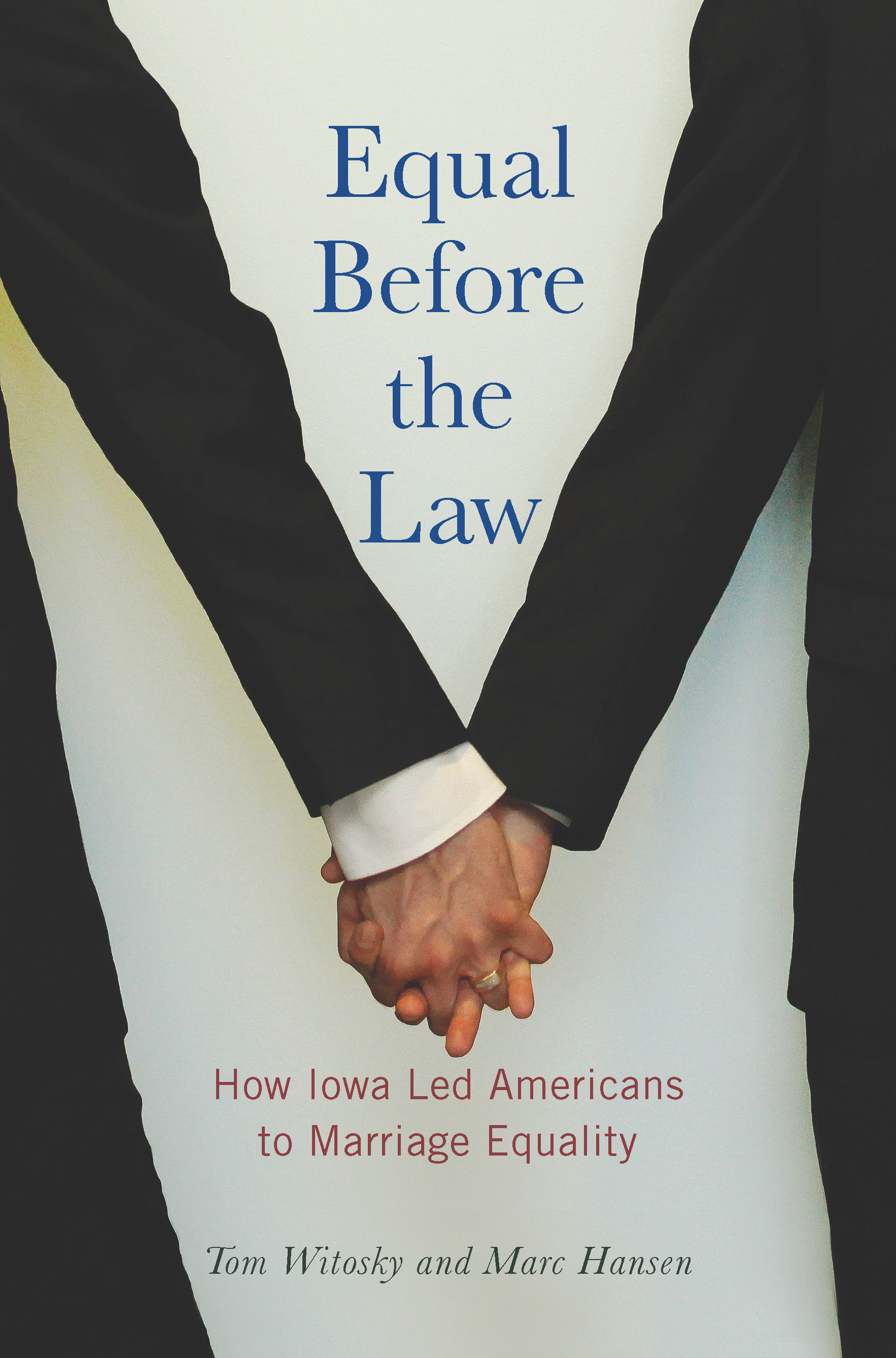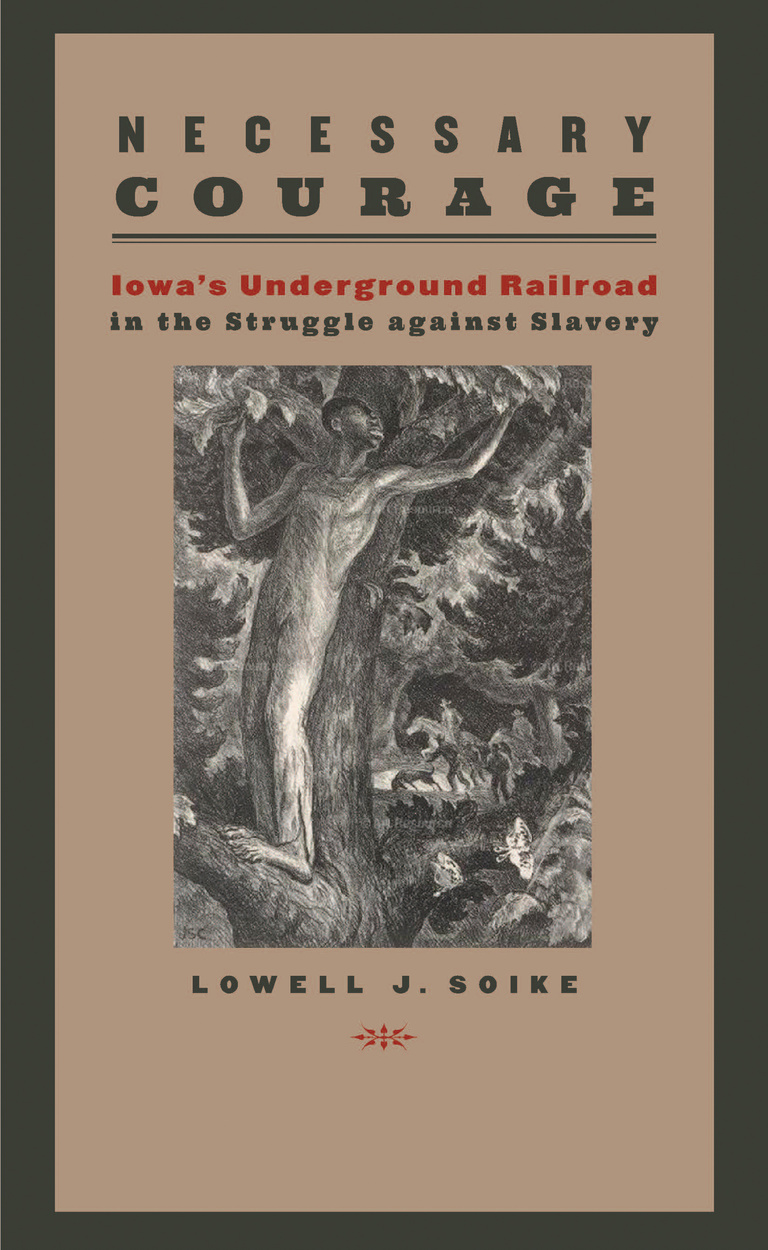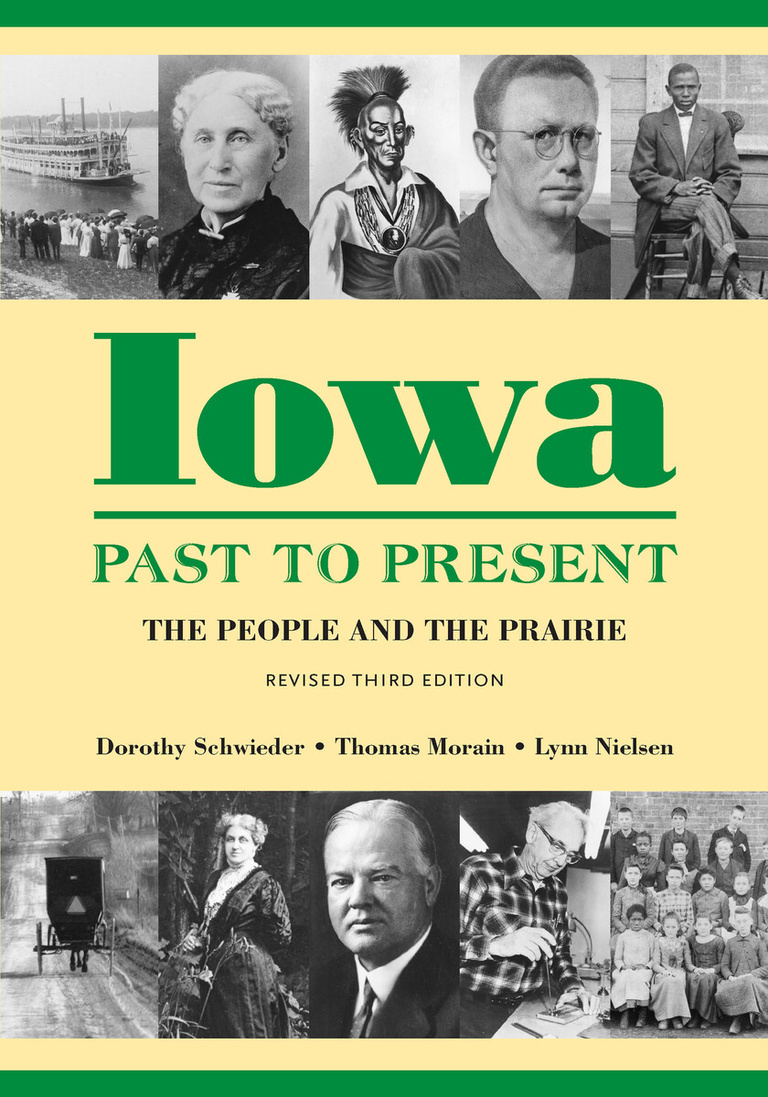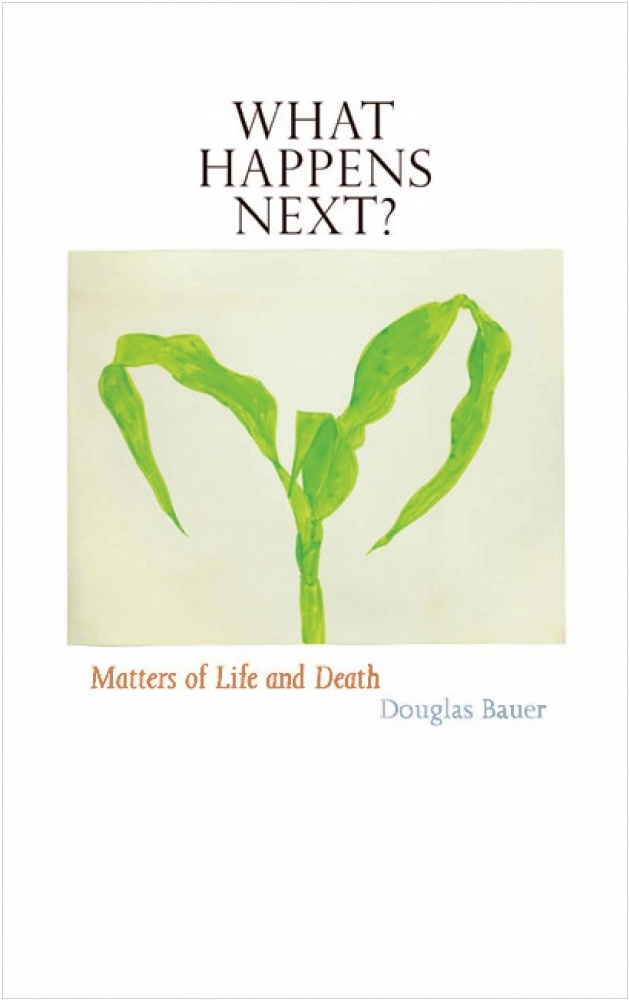Benjamin F. Shambaugh Award finalist
“We’ve been together in sickness and in health, through the death of his mother, through the adoption of our children, through four long years of this legal battle,” Jason Morgan told reporters of himself and his partner, Chuck Swaggerty. “And if being together through all of that isn’t love and commitment or isn’t family or isn’t marriage, then I don’t know what is.” Just minutes earlier on that day, April 3, 2009, the justices of the Iowa Supreme Court had agreed.
The court’s decision in Varnum v. Brien made Iowa only the third state in the nation to permit same-sex couples to wed—moderate, midwestern Iowa, years before such left-leaning coastal states as California and New York. And unlike the earlier decisions in Massachusetts and Connecticut, Varnum v. Brien was unanimous and unequivocal. It catalyzed the unprecedented and rapid shift in law and public opinion that continues today.
Equal Before the Law tells the stories behind this critical battle in the fight for marriage equality and traces the decision’s impact. The struggle began in 1998 with the easy passage of Iowa’s Defense of Marriage Act and took a turn, surprising to many, in 2005, when six ordinary Iowa couples signed on to Lambda Legal’s suit against the law. Their triumph in 2009 sparked a conservative backlash against the supreme court justices, three of whom faced tough retention elections that fall.
Longtime, award-winning reporters Tom Witosky and Marc Hansen talked with and researched dozens of key figures, including opponent Bob Vander Plaats, proponents Janelle Rettig and Sharon Malheiro, attorneys Roger Kuhle, Dennis Johnson, and Camilla Taylor, and politicians Matt McCoy, the late Mary Lundby, Christopher Rants, and Tom Vilsack, who had to weigh their careers against their convictions. Justice Mark Cady, who wrote the decision, explains why the court had to rule in favor of the plaintiffs. At the center of the story are the six couples who sacrificed their privacy to demand public respect for their families.
Through these voices, Witosky and Hansen show that no one should have been surprised by the 2009 decision. Iowans have a long history of leadership on civil rights. Just a year after Iowa became a state, its citizens adopted as their motto the phrase, “Our liberties we prize and our rights we will maintain.” And they still do today.
“Equal Before the Law grabs your attention on page one and never lets you go. This is a first-of-its-kind, behind-the-scenes look into the decision that changed marriage in America forever. You’ll chuckle, you may even cry, and agree or disagree with the Court’s decision, you’ll put the book down understanding why, and how, Varnum changed everything.”—Zach Wahls, LGBTQ advocate
“Tom Witosky and Marc Hansen have told a compelling story of how elected judges in Iowa—America’s heartland—struck down prohibitions on same-sex marriage as discriminatory, out of the state’s tradition of tolerance and equality. Some of these courageous jurists were recalled, but their prescience offered a pathway to a greater acceptance of marriage equality in the country.”—Al Hunt, Bloomberg
“Equal Before the Law fills an important need, and does it very well. Much has been written about the fight for LGBT rights at the national level, but the progress we have achieved on one important issue—same-sex marriage—has occurred almost entirely at the state level, and too little has been written about that. This insightful, informative, and well-written account of the fight for same-sex marriage in Iowa helps fill that vacuum very well. Tom Witosky and Marc Hansen do an excellent job of weaving three threads together—the personal, the judicial, and the political. It is an essential addition to any reading list about the fight for LGBT equality in this century.”—Congressman Barney Frank (retired)
Benjamin F. Shambaugh Award Finalist



